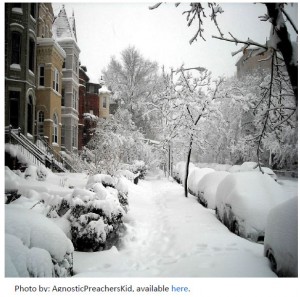In recent years, many homeless residents have not received the services they need to quickly get into a safe and stable home. Without help, they have struggled to hold down a job or regularly get needed services like counseling or medical treatment. Mayor Bowser and the DC Council should make it a priority to help homeless residents get back on their feet by:

Creating a plan for new family shelters in the next budget. DC currently allows families to enter shelters only during the winter, when the city must do so by law. Families who become homeless in the summer often couch surf for months, moving in with a different friend or family member every few days. This makes it difficult for parents to get to work and children to get to school. Families that get into DC General Family Shelter face deplorable and overcrowded conditions. DC can serve these families better by replacing DC General with smaller shelters with additional capacity.
Strengthening Rapid Re-housing to better serve families. Rapid Re-housing (RRH) combines short-term rental assistance with support services to help families move out of shelter. But it does not follow national recommended best practices, such as tailoring the length of rental assistance to a family’s circumstances and helping families quickly locate housing. Additionally there is no way for families who exit RRH to get help if they face challenges paying rent on their own. DC should quickly fix these problems.
Exploring ways to better serve young parents. Nearly half of families who entered shelter last winter were headed by a parent aged 24 or younger. These parents face unique challenges, often lacking a high school diploma or GED, having limited work experience, and never having their own home. Other cities offer young parents longer periods of rental assistance and more intensive job preparation services. The District should look to these cities as models.
Jumpstarting efforts to end veteran homelessness by housing 50 veterans in permanent supportive housing (PSH) in 100 days. The city has devoted money to end veteran homelessness in 2015, but few have been housed so far. These veterans cannot afford to wait because they suffer from life-threatening physical and mental health problems. PSH combines housing with support services, leads to better health for residents, and saves the District money because residents rely less on expensive emergency rooms for healthcare.
Funding the new “Coordinated Entry” System to help homeless residents get help quickly and easily. Until recently, residents had to go from organization to organization to find out if they had housing openings. Coordinated Entry quickly matches homeless residents with available housing. The budget includes $250,000 to provide this service, but funding has been held back due to the city’s financial problems. This small amount of funding is critical to ensuring that individuals can move into housing as quickly as possible.
Supporting the upcoming Interagency Council on Homelessness (ICH) Strategic Plan. The ICH is creating a plan to tackle homelessness over the next five years. It will identify the number and type of housing assistance needed for homeless families, individuals, and youth. The District will need to redirect money from failing programs, leverage federal funding, and invest additional local funds to ensure that all homeless residents can get the services they need.
To read the full copy of DCFPI’s transition brief on family homelessness, click here.
To read the full copy of DCFPI’s transition brief on individual homelessness, click here.
To print a copy of today’s blog, click here.
